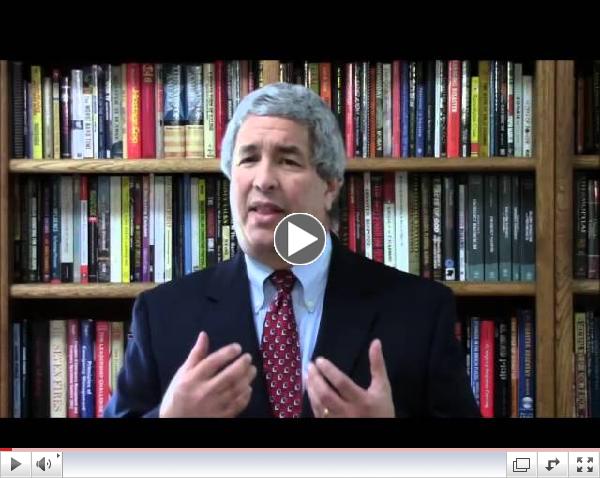|
Ignore Those Jerks
One of the funny things about life is the importance we give to those whose opinions really don't matter. We obsess over the one person who voices disapproval while ignoring the many who give their approval. We really need to turn this around.
As someone who contributes to three blogs and publishes a newsletter, it's a constant challenge to remember that for everyone who leaves a rude comment or makes a personal attack, there are several hundred who read my work and enjoyed it. Blogs reflect your opinion and carry a certain amount of personal investment. It's natural to feel a bit defensive about them. When a colleague offers an opposing point of view or corrects an error of fact, it creates a dialogue that is interesting to both me and many other readers. Opening your rebuttal with a personal attack and offering nothing of substance only demonstrates to everyone that you are jerk.
But for some reason, you remember those jerks. I still remember a colleague who took violent objection to one of my articles and demanded to be removed from my mailing list. When I went to do so, I found he hadn't even read the article. But I remember that rather than the fact that several hundred people read the article and that several chose to comment favorably on it.
So now I make it a point not to respond to any negative comments I receive and have learned to ignore them (well, mostly). There are more important things to do than responding to negativity. Consider where you can implement this in your own life and give it a try. It's not easy but it does make life a little bit better.
|
|
From the Bookshelf

Case Studies in Disaster Response and Emergency Management
by Nicolas A. Valcik and Paule E. Tracy
Having trouble coming up with a scenario for your next exercise? This book details over 50 actual events, some well known and some obscure, ranging from natural disasters to industrial accidents to terror attacks that can give yous some ideas. The scenarios are not limited to the United States but consider historical events from around the world.
Each case study is divided into stages, allowing them to be used as either discussion based or operational exercises. While each case study suggests a role for the players, they are generic enough to be easily adapted to local conditions. Each case study concludes with a brief statement of key issues and items of note.
One minor quibble is that you will need to do your own research on the incidents themselves - the case studies follow the sequence of the events but do not summarize the events themselves. Also, the focus is largely on response but extending the case studies to consider recovery issues could be easily done.
____________________________________________
|
| |
Interested in more books on emergency management and related topics?
|
|
|
Looking for a Speaker?
Need a speaker for your next conference? I offer keynotes, seminars and workshops.
 | |
Three Reasons Why I'm the Right Speaker for Your Conference
|
|
|
Speaking Engagements
Now taking bookings for 2016
|